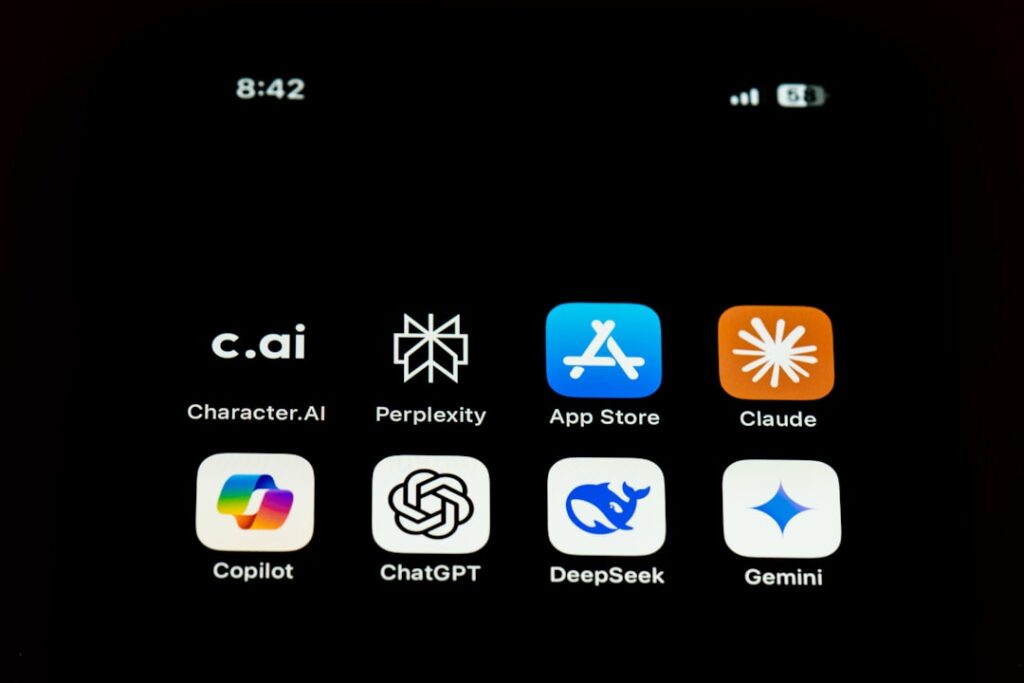AI Tools for Mobile Devices: Enhance Your App Experience with AI Mobile App Optimization
In the rapidly evolving digital landscape, AI mobile app optimization has become essential for developers aiming to enhance user experience and engagement. Leveraging AI tools for mobile devices not only streamlines app performance but also personalizes user interactions, making applications more intuitive and enjoyable. This article delves into the importance of AI in mobile app development and highlights practical tools that can help optimize mobile applications effectively.
Understanding AI Mobile App Optimization
AI mobile app optimization refers to the integration of artificial intelligence technologies into mobile applications to improve various aspects, including performance, user experience, and engagement metrics. With an overwhelming number of mobile apps available in app stores, ensuring that your app stands out is crucial. AI tools facilitate this by analyzing user behaviors, providing insights into usage patterns, and automating many processes that can lead to a better final product.
Key Benefits of AI in Mobile App Development
- Personalization: AI tools allow developers to tailor experiences based on user preferences and behaviors, making the app more relevant to individuals.
- Performance Improvement: Algorithms can optimize resource allocation, reducing lag and enhancing overall app speed and efficiency.
- Predictive Analytics: AI analyzes data trends to predict future user actions, which can help in feature development and marketing strategies.
Popular AI Tools for Mobile App Optimization
Implementing AI technology in mobile apps can be done using various tools that cater to different aspects of app development. Here are some of the most popular AI tools that can greatly enhance the mobile app optimization process.
1. TensorFlow Lite
TensorFlow Lite is a lightweight version of Google’s TensorFlow, designed specifically for mobile and embedded devices. It allows developers to integrate machine learning capabilities smoothly into applications, enabling features like object detection, voice recognition, and natural language processing.
2. IBM Watson
IBM Watson offers a suite of AI services, including natural language processing, machine learning, and data analysis. With its powerful APIs, developers can enhance their mobile apps with sophisticated analytics and cognitive functionalities, improving decision-making and user interactions.
3. Google ML Kit
Google ML Kit provides a set of functionalities that developers can use for mobile app optimization. Features like text recognition, face detection, and barcode scanning are all integrated into the kit, allowing for seamless user experiences without extensive backend setups.
4. Microsoft Azure AI
Microsoft’s Azure AI services offer highly scalable machine learning solutions that integrate into mobile apps. Leveraging Azure’s cloud capabilities, developers can analyze vast quantities of data and personalize the user experience accordingly.
Integrating AI Tools into Your App Development Process
To effectively use AI mobile app optimization tools, it’s important to follow a structured approach during the development process. Here are key steps to consider:
- Define Objectives: Clearly outline what you want to achieve with AI integration, whether it’s enhancing user engagement, optimizing performance, or personalizing content.
- Select Appropriate Tools: Based on your objectives, choose AI tools that align with your app’s needs and your team’s skill set.
- Develop and Test: Implement AI features and rigorously test them to ensure they work as intended, gathering feedback for improvements.
- Monitor Performance: Post-launch, continuously monitor the app’s performance based on user interactions and refine your AI algorithms to better serve user needs.
Challenges in AI Mobile App Optimization
While integrating AI into mobile applications offers numerous benefits, there are also challenges developers may encounter. These include:
- Data Privacy Concerns: Handling user data responsibly is critical; ensure compliance with regulations like GDPR and CCPA.
- Complexity of Implementation: AI technologies can be complex, requiring skilled developers familiar with machine learning and data science.
- Resource Intensive: Some AI functionalities may demand considerable computational resources, which can affect app performance if not properly managed.
Conclusion
AI mobile app optimization is revolutionizing how mobile applications are developed and experienced. By harnessing the capabilities of various AI tools, developers can create more personalized, efficient, and engaging mobile apps. Despite the challenges posed by data privacy and implementation complexity, the potential rewards in terms of improved user experiences make it a worthy endeavor. As technology advances, the role of AI in mobile development will undoubtedly expand, offering even more innovative solutions for creators and users alike.
Enhancing User Experience with AI
AI mobile app optimization focuses on personalizing the user experience. By incorporating machine learning algorithms, apps can analyze user behavior and preferences, leading to tailored content and features. This adaptive approach ensures that users remain engaged and find the application more valuable. Whether it’s suggesting new features or optimizing the interface for ease of use, AI tools play a crucial role in enhancing overall satisfaction and retention.
Streamlining Performance and Efficiency
Another significant advantage of AI mobile app optimization is its ability to streamline app performance. AI tools can automatically identify bugs, monitor functionality, and recommend improvements, allowing developers to enhance speed and efficiency. This not only aids in keeping the app stable but also provides users with a smooth experience, which is essential in today’s fast-paced digital environment.
Future Trends in AI Mobile App Optimization
As technology evolves, so do AI mobile app optimization techniques. Emerging trends such as voice recognition, augmented reality, and predictive analytics are set to reshape user interactions. Developers will increasingly rely on AI to analyze vast amounts of data, allowing them to anticipate user needs and refine app functionalities proactively. This forward-thinking approach ensures that applications remain relevant and aligned with user expectations.


